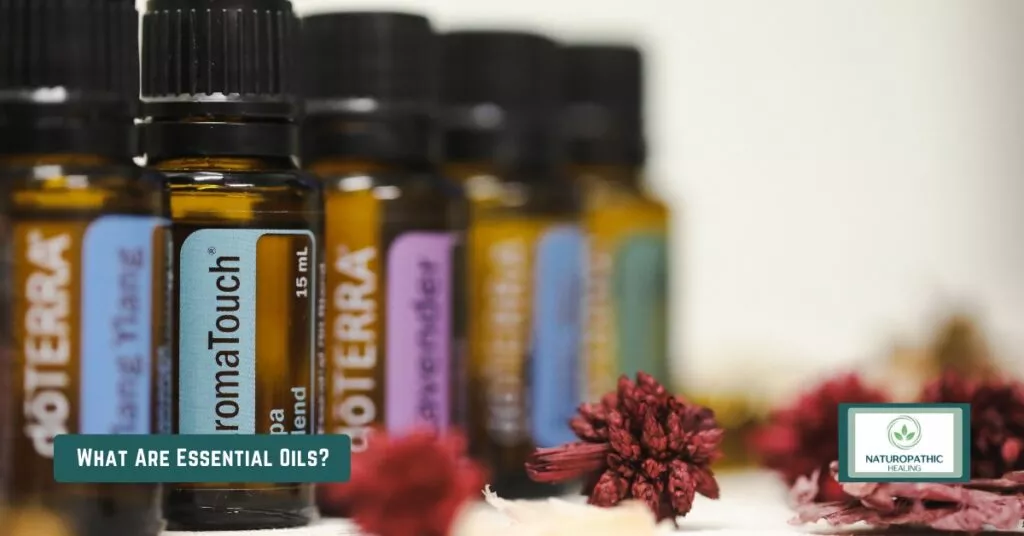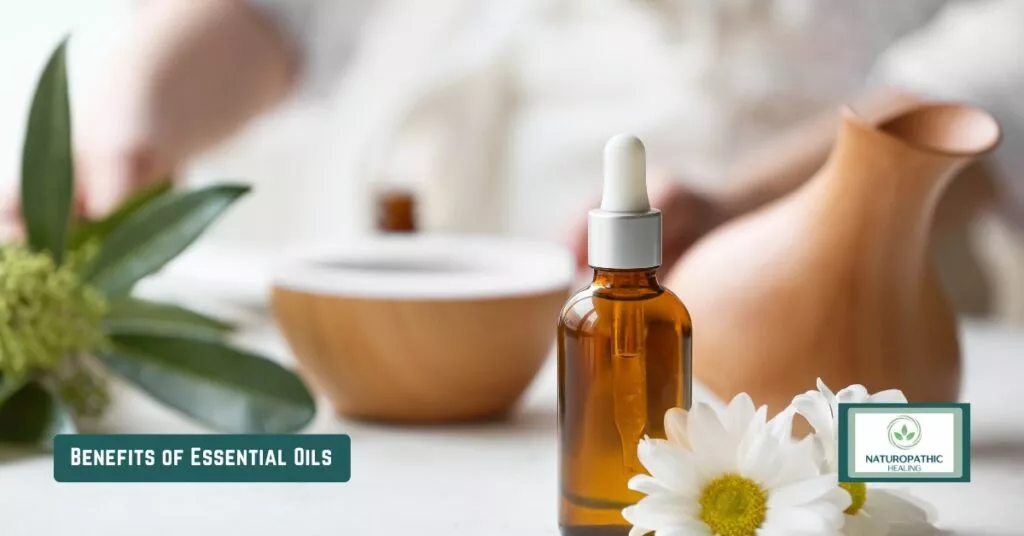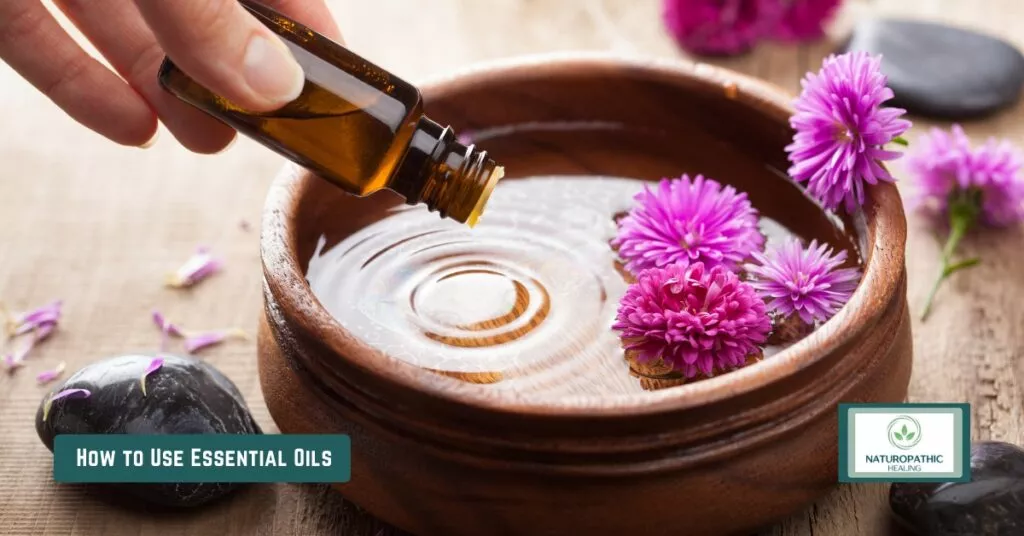Essential oils have been used for centuries for their therapeutic and medicinal properties. They are highly concentrated plant extracts that are obtained through various methods such as distillation, cold pressing, or solvent extraction. These oils are known to have a wide range of benefits, including reducing stress and anxiety, improving sleep quality, and boosting the immune system.
One of the most popular ways to use essential oils is through aromatherapy. That involves inhaling the scent of the oil, which can have a powerful effect on the mind and body. Essential oils can also be applied topically, either directly to the skin or diluted with a carrier oil, to help with various skin conditions or muscle pain.
It’s important to note that while essential oils can provide many benefits, they should be used with caution. Some oils can cause skin irritation or allergic reactions, and others can interact with certain medications. It’s always a good idea to do your research and consult with a healthcare professional before using essential oils.
Table of Contents
What Are Essential Oils?

Essential oils are highly concentrated plant extracts that are obtained through distillation or cold-pressing. They are called “essential” because they capture the essence of the plant’s fragrance and flavor.
The use of essential oils dates back thousands of years to ancient civilizations such as Egypt, Greece, and Rome. They were used for their therapeutic properties, as well as for perfumes, cosmetics, and religious ceremonies.
Essential oils are composed of various chemical compounds that give them their unique properties and benefits. For example, lavender oil contains linalool, which has a calming effect on the nervous system, while peppermint oil contains menthol, which has a cooling and invigorating effect.
It’s important to note that essential oils should be used with caution and under the guidance of a qualified practitioner. They are highly concentrated and can be toxic if misused. It’s also important to use high-quality, pure essential oils to ensure their safety and effectiveness. Learn more about essential plant oils and headache mechanisms.
Overall, essential oils can be an excellent addition to your health and wellness routine when appropriately used. They offer a natural alternative to synthetic fragrances and can provide a wide range of benefits for both the mind and body.
Benefits of Essential Oils

Here’s a table summarizing essential oils commonly used for various purposes:
| Purpose | Essential Oils |
| Cough | Eucalyptus, Peppermint, Lavender, Tea Tree, Thyme, Frankincense |
| Pain | Lavender, Peppermint, Eucalyptus, Rosemary, Chamomile, Ginger, Clary Sage |
| Congestion | Eucalyptus, Peppermint, Tea Tree, Rosemary, Lemon, Oregano, Thyme |
| Hair Growth | Rosemary, Peppermint, Lavender, Cedarwood, Thyme, Clary Sage, Ylang Ylang |
| Allergies | Peppermint, Lavender, Lemon, Eucalyptus, Tea Tree, Chamomile, Frankincense, Basil, Roman Chamomile |
| Headaches | Peppermint, Lavender, Eucalyptus, Rosemary, Chamomile, Frankincense, Basil, Lemon |
Here are some of the most popular essential oils and their uses.
Lavender Oil
Lavender oil is one of the most popular essential oils, and for good reason. It has a calming effect on the body and can help reduce anxiety and stress. It’s also great for promoting restful sleep and can even help alleviate headaches.
Tea Tree Oil
Tea tree oil is known for its antibacterial and antifungal properties. It’s often used to treat acne, as well as other skin conditions like eczema and psoriasis. It can also be used to treat dandruff and other scalp conditions.
Frankincense Oil
Frankincense oil has been used for centuries for its healing properties. It’s known to have anti-inflammatory effects and can help reduce pain and swelling. It’s also great for promoting healthy skin and can even help reduce the appearance of fine lines and wrinkles.
Peppermint Oil
Peppermint oil is excellent for promoting mental clarity and focus. It’s also known to have a cooling effect on the body and can help alleviate headaches and muscle pain. It’s even been shown to help alleviate symptoms of irritable bowel syndrome (IBS).
Eucalyptus Oil
Eucalyptus oil is great for promoting respiratory health. It can help alleviate symptoms of colds and flu, as well as other respiratory conditions like asthma and bronchitis. It’s also great for relieving muscle pain and tension.
Lemon Oil
Lemon oil is known for its uplifting and energizing properties. It’s great for promoting a positive mood and can even help reduce stress and anxiety. It’s also great for promoting healthy skin and can help reduce the appearance of blemishes and scars.
Lemongrass Oil
Lemongrass oil has a fresh, citrusy scent and is great for promoting mental clarity and focus. It’s also known to have antibacterial and antifungal properties and can be used to treat acne and other skin conditions.
Orange Oil
Orange oil has a sweet, citrusy scent and is great for promoting a positive mood. It’s also great for promoting healthy skin and can help reduce the appearance of wrinkles and fine lines.
Rosemary Oil
Rosemary oil is great for promoting mental clarity and focus. It’s also known to have anti-inflammatory effects and can help reduce pain and swelling. It’s even been shown to help improve memory and cognitive function.
Bergamot Oil
Bergamot oil has a fresh, citrusy scent and is great for promoting a positive mood. It’s also great for promoting healthy skin and can help reduce the appearance of scars and blemishes.
Cedarwood Oil
Cedarwood oil has a warm, woody scent and is great for promoting relaxation and reducing stress. It’s also great for promoting healthy skin and can help reduce the appearance of blemishes and scars.
Overall, essential oils can be a great addition to your self-care routine. Just be sure to use them safely, and always dilute them with carrier oil before applying them to your skin.
How to Use Essential Oils

Using essential oils can be a great way to improve your health and well-being. Here are some tips on how to use essential oils:
Inhalation
One way to use essential oils is to inhale them. You can do this by adding a few drops of essential oil to a bowl of hot water and inhaling the steam. You can also add a few drops of essential oil to a diffuser and let it fill the air with the scent of the oil.
- IDEAL GIFT: Comes with a beautiful gift box, this essential oil set is also an ideal gift for your families, friends and lovers in birthday, anniversary, Valentine’s Day or Christmas
Topical Application
Another way to use essential oils is to apply them topically. You can do this by mixing a few drops of essential oil with a carrier oil, such as coconut or almond oil, and applying it to your skin. Be sure to do a patch test first to make sure you’re not allergic to the oil.
Internal Use
Some essential oils can be taken internally, but it’s important to do so safely. Only use essential oils that are labeled for internal use, and always follow the recommended dosage. You can add a drop or two of essential oil to a glass of water or put it in a capsule and swallow it.
Remember, essential oils are powerful and should be used with care. If you have any concerns or questions, consult with a healthcare professional before using them.
- 100% pure and therapeutic-grade Vitality Peppermint essential oil
Final Thoughts
Harnessing the power of nature’s remedies, essential oils offer a versatile approach to addressing common ailments.
Whether combating a stubborn cough, easing persistent pain, or relieving nasal congestion, essential oils such as eucalyptus, peppermint, and lavender stand as stalwart allies.
For those seeking to stimulate hair growth or manage allergies, oils like rosemary, tea tree, and chamomile offer gentle yet effective solutions.
Meanwhile, the soothing aroma of lavender or the cooling sensation of peppermint can provide much-needed relief from headaches. With their natural properties and diverse applications, essential oils serve as a holistic toolkit for promoting well-being and vitality.
Frequently Asked Questions
Using essential oils in a diffuser is a great way to enjoy the benefits of aromatherapy. The best method for using essential oils in a diffuser is to add a few drops of your chosen essential oil to the water in the diffuser. It is important to follow the instructions that come with your diffuser to ensure that you are using it correctly. You can also experiment with different combinations of essential oils to find the perfect scent for you.
Essential oils can be a great addition to your skincare routine. Some essential oils have anti-inflammatory and antibacterial properties that can help reduce acne and improve overall skin health. However, it is important to remember that essential oils are highly concentrated and should always be diluted before applying them to the skin. You can mix a few drops of your chosen essential oil with a carrier oil, such as coconut oil or jojoba oil, before applying it to your skin.
Some essential oils can help promote healthy hair growth and improve the overall health of your hair. Rosemary oil, for example, has been shown to improve hair thickness and growth. Peppermint oil can help stimulate hair growth and reduce dandruff. Lavender oil can help soothe an itchy scalp and promote relaxation. You can add a few drops of your chosen essential oil to your shampoo or conditioner, or mix it with a carrier oil and massage it into your scalp.
Essential oils have a wide range of uses and benefits. Some common uses include aromatherapy, massage, skincare, and hair care. Essential oils can help reduce stress and anxiety, improve sleep, boost immunity, and promote relaxation. However, it is important to remember that essential oils are not a cure-all and should be used in conjunction with other healthy habits.
Some essential oils can be safely combined, while others should be used separately. It is vital to research the essential oils you plan to use and make sure they are safe to combine. For example, citrus oils can cause photosensitivity and should be avoided if you will be spending time in the sun. Some essential oils can also interact with certain medications, so it is important to check with your doctor before using essential oils if you are taking any medications.
The top essential oils everyone should consider having in their collection include lavender, peppermint, tea tree, eucalyptus, and lemon. Lavender oil is excellent for relaxation and promoting sleep. Peppermint oil can help improve focus and reduce headaches. Tea tree oil has antibacterial and antifungal properties and can help reduce acne. Eucalyptus oil can help relieve congestion and promote respiratory health. Lemon oil can help boost mood and improve overall wellness.



